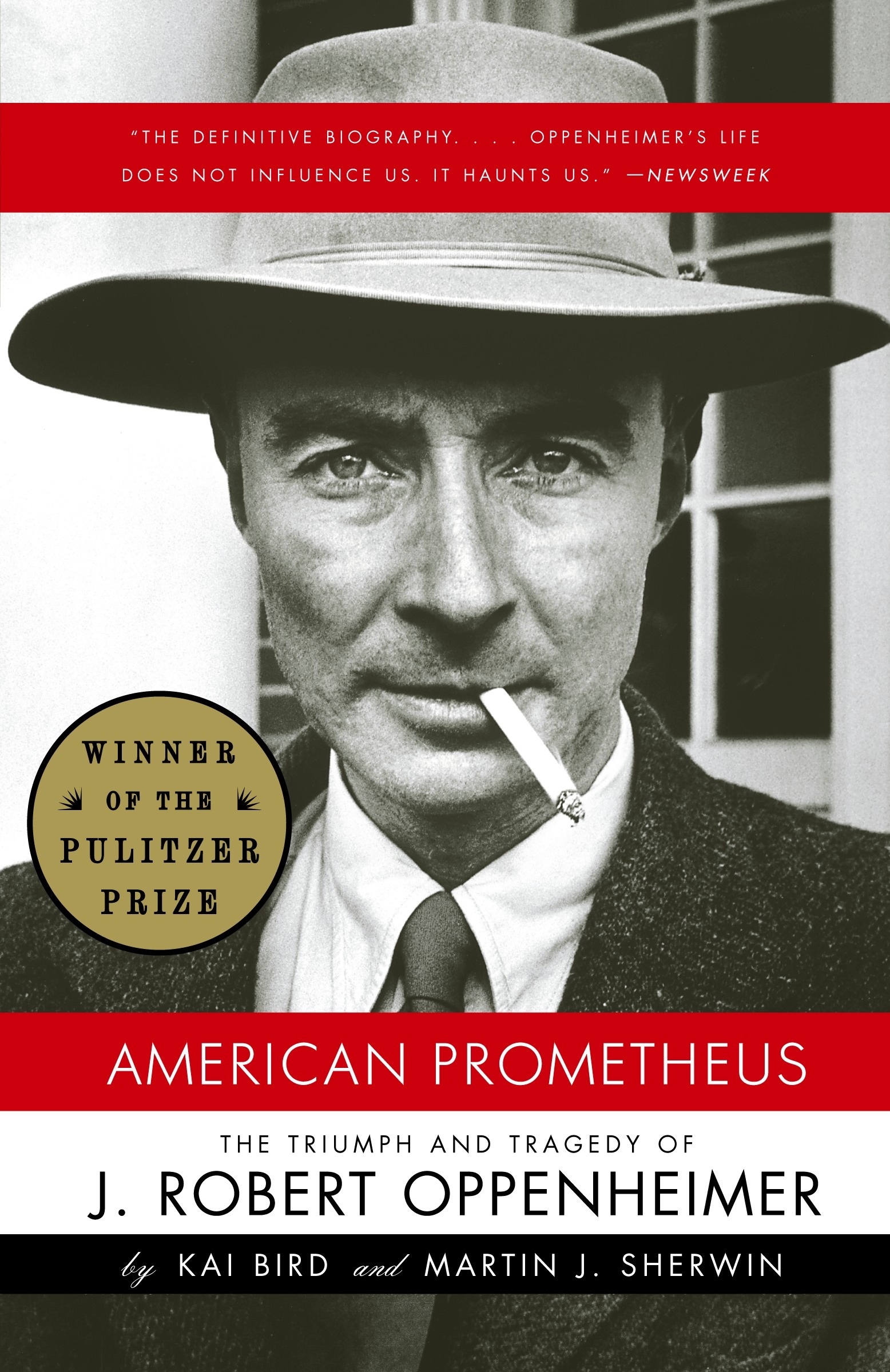
The cover of "American Prometheus." (Vintage Books)
Rabia Akhtar
“In some sort of crude sense which no vulgarity, no humor, no overstatement can quite extinguish, the physicists have known sin; and this is a knowledge which they cannot lose.” Robert Oppenheimer at a lecture at Massachusetts Institute of Technology, 25 November 1947
Oppenheimer by Christopher Nolan is a fascinating film that delves into the life of J. Robert Oppenheimer, a physicist who led the Manhattan Project, the top-secret World War II effort to develop the first nuclear weapons. Based on the 2005 book American Prometheus: The Triumph and Tragedy of J. Robert Oppenheimer by Kai Bird and Martin J Sherwin, the movie brings to life the complex narrative of Oppenheimer’s life and his contributions to history.
The late Martin Sherwin, one of the authors of the book that inspired the movie, was a renowned historian who specialized in the history of science. Sherwin was a professor of history at Tufts University and the author of several other books, including A World Destroyed: Hiroshima and its Legacies and Gambling with Armageddon: Nuclear Roulette from Hiroshima to the Cuban Missile Crisis. He was widely respected for his work in the field of nuclear history and was a recipient of numerous awards and honors, including a Pulitzer Prize for his work on Oppenheimer, American Prometheus.
Sherwin, who sadly passed away in 2021, was widely regarded as an authority on the life and work of J. Robert Oppenheimer and the Manhattan Project. I first met Marty (as he was lovingly called by anyone whose life he touched) in 2014 at the NPIHP nuclear bootcamp in Rome, which I attended as a PhD student. Later in my interactions with him at the bootcamp as his fellow teaching faculty, we discussed several times the nuclear history surrounding Pakistan’s own nuclear weapons development and he was fascinated by the trials and tribulations of Pakistani scientists and engineers who gave Pakistan the bomb.
Marty’s personality, as a scholar and historian, was characterized by his attention to detail, rigorous analysis, and a deep sense of responsibility to the historical record. His work was marked by an unwavering commitment to uncovering the truth of what happened in the past while avoiding the pitfalls of presentism and hindsight bias. Marty was particularly interested in the social and political dimensions of science and technology and the ways in which they have shaped modern society. His research and analysis highlighted the complex and often troubling moral and ethical implications of scientific progress and its impact on society.
In the context of Nolan’s Oppenheimer, Marty’s contributions are particularly noteworthy. The movie presents a complex and multifaceted portrait of Oppenheimer, and one that is faithful to the themes explored in the book. The film does not shy away from the darker aspects of Oppenheimer’s life, including his struggles with mental health, his relationships and his Communist sympathies. Nolan’s adaptation also highlights Oppenheimer’s brilliance and his tireless devotion to science, underscoring the weight of his contributions to American history and the broader world of nuclear physics.
A must watch, Oppenheimer is an excellent film that provides a thought-provoking exploration of one of the most significant figures in modern American history. The movie is true to the book in terms of the representation of characters, themes, and crucial historical events, making it an excellent adaptation of the literary work. Nolan’s direction and Murphy’s performance are both exceptional, but what truly sets the film apart is its willingness to ask the difficult questions about the moral implications of scientific progress. This film is a must-see for anyone interested in the history of science, the ethics of technological progress, or the complex interplay between science and politics in the modern world.
American Prometheus is a monumental masterpiece, spanning 770 pages and an absolute essential read. Whether you choose to dive into its pages before or after watching the movie, the order matters not. Embrace the captivating journey only a truly remarkable book like this can offer.
Marty, watching the movie made me long for your presence. Your legacy as a scholar and historian will forever ignite inspiration within all of us.
Just as you’ve always signed off, I too bid farewell. Avanti.
Prof. Dr. Rabia Akhtar is Director, Center for Security, Strategy and Policy Research (CSSPR), University of Lahore, Pakistan.




